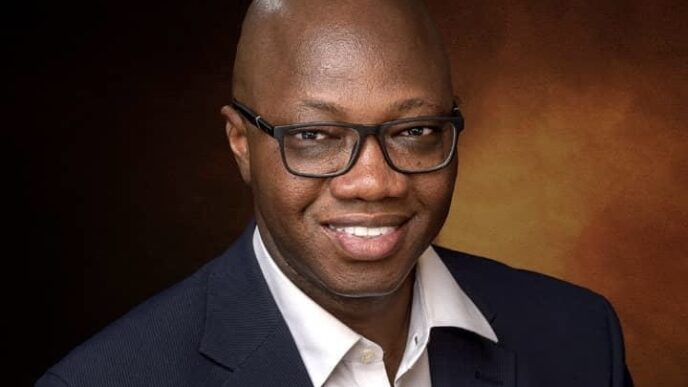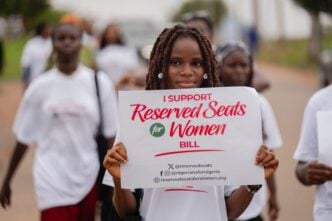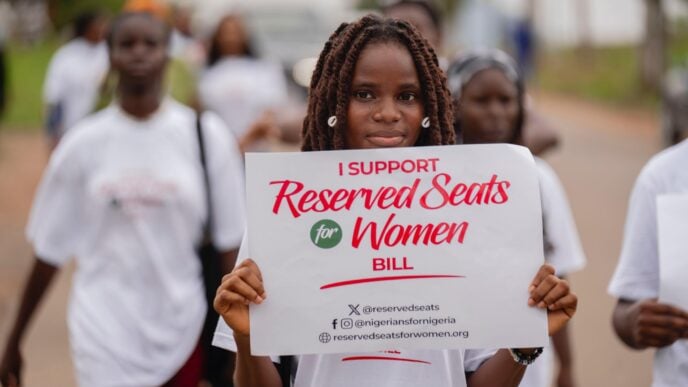BY LEKAN OLAYIWOLA
Since 1999, barely 43 women senators and 119 house members have held elective seats in Nigeria’s national assembly. Sometimes triumphant but often solitary, their journeys tell stories of structural exclusion and individual determination. Some were often the only women in the chamber, shaping financial, environmental, gender, and infrastructure reforms. Others had evolving roles from legislator to minister, speaker, or advocate, lighting the path for future generations, even as representation remains low.
Over twenty-five years of democracy in Nigeria, women have held 162 out of 3,283 legislative seats. That means women have occupied fewer than 1 in 20 (or 4.9%) seats in Nigeria’s highest law-making body. This is not a symbolic absence, but an entrenched structural gap and systemic marginalisation of women in Nigeria’s political landscape.
With women holding less than 5% of seats in the National Assembly, the country ranks among the lowest globally for female political representation. The proposed Reserved Seats Bill, if passed, aims to change that trajectory, even if modestly.
Advertisement
Critics call it Tokenism
The Bill offers access to formal political power, reserving 111 extra seats for women in the National Assembly, granting women a legally mandated political presence—a foot in the door. This signals constitutional recognition that gender exclusion is real. Although it could inspire a new generation of female political aspirants, critics regard it as a temporary structural fix because it’s not permanent—it’s designed to expire after 16 years.
Critics say it doesn’t address root causes, tackle party gatekeeping, money politics, or political violence, which are the real barriers. Without reforms to party primaries, campaign financing, and electoral safety, many qualified women will still be locked out. It neither empowers at scale nor matches actual demographic or participatory parity. It may lead to tokenism if not followed by deeper institutional reforms.
Advertisement
The Bill risks ghettoising women’s representation; by creating “special” women’s seats, it could reinforce the notion that women are politically “other” or only belong in segregated spaces. It doesn’t guarantee leadership influence because having more women in parliament doesn’t translate to women leading parliament, especially in key committees or power blocs.
But while it may look like a small step, for generations of politically excluded women, this could be a giant leap forward. Around the world, gender quotas have proven to be not only effective but transformative. They are not about charity. They are about legitimacy.
Never Underestimate the Power of Quota in Gender Politics
In Rwanda, a constitutional mandate reserves 30% of parliamentary seats for women. The result? Women now hold 61% of the lower house—the highest in the world. This didn’t happen by accident. It happened by design.
Advertisement
Mexico took a different route. Through a parity law, political parties are required to nominate 50% women for all elected positions. The outcome? Near-equal representation in Congress. Not because women were given power, but because they were finally allowed to compete on equal footing.
In India, the transformation began at the grassroots. One-third of all seats in local councils are reserved for women. Today, over one million women serve in local governance. That’s not symbolism. That’s infrastructure.
Senegal passed a law mandating gender parity on party lists. Today, women hold 43% of seats in the National Assembly. And in Tunisia, a “zipper system” requires party lists to alternate between male and female candidates, ensuring not just presence, but placement.
Representation doesn’t happen by accident. It happens by architecture
Advertisement
Although Nigeria’s proposed model doesn’t guarantee outcomes, it guarantees access. And it doesn’t erase merit. It removes the barricades that have long distorted it. Reserved seats are not about favour. They are about repairing the civic contract. To be clear: this is not the final step. It is the first. But it is a necessary one. Because when women are absent from the room, the nation doesn’t just lose voices. It loses vision.
We have the data. We have the global precedent. What we need now is the courage to legislate equity not someday, but now.
Advertisement
Let Nigeria be the next example others cite—not for how long we waited, but for how boldly we moved.
Addressing the Concerns Raised by Critics
Advertisement
Reserved seats aside, the party won’t dismantle the barricades of gatekeeping, money politics, and electoral violence. But here’s the opportunity: the bill can be paired with complementary reforms, such as mandatory internal party quotas for primaries, public campaign financing for women candidates and electoral safety protocols, especially in high-risk zones. Reserved seats can be the wedge that opens the door, but the rest of the architecture must follow.
111 seats in a legislature of nearly 500 may be far from parity. But this is a Temporary Special Measure (TSM), a 16-year intervention designed to shift culture, not freeze it. The goal isn’t to stop at 111; it’s to normalise women’s presence so that future elections don’t need scaffolding.
Advertisement
To avoid tokenisation, however, the bill must be paired with leadership development pipelines, reviewed every 4 years for impact, not just presence, linked to open-seat competitiveness so that women can transition from reserved to general seats
Ghettoising women’s representation is a real risk. If reserved seats become the only space where women are “allowed,” it reinforces marginalisation. But the bill can be designed to counteract that narrative by ensuring women in reserved seats can contest general seats simultaneously, rotating reserved seats across constituencies to avoid geographic ghettoisation and publicly framing the reform as transitional, not permanent. The language around the bill matters as much as the law itself.
It is true doesn’t guarantee leadership influence—numbers don’t equal power. Women can be present and still sidelined. That’s why the reform must include committee leadership quotas, party-level leadership inclusion mandates, and mentorship and coalition-building platforms to amplify women’s voices inside parliament.
Criticism doesn’t dismantle the bill; it demands its evolution. Reserved seats are not the destination. They’re the ramp to a more just political system. Reserved doesn’t mean resigned. Done right with empathy and dignity, Nigeria’s gender quota reform can be truly transformational. It could be a powerful bridge between scepticism and strategy.
Lekan Olayiwola is a peace and conflict researcher and practitioner. He can be reached via [email protected]
Views expressed by contributors are strictly personal and not of TheCable.











